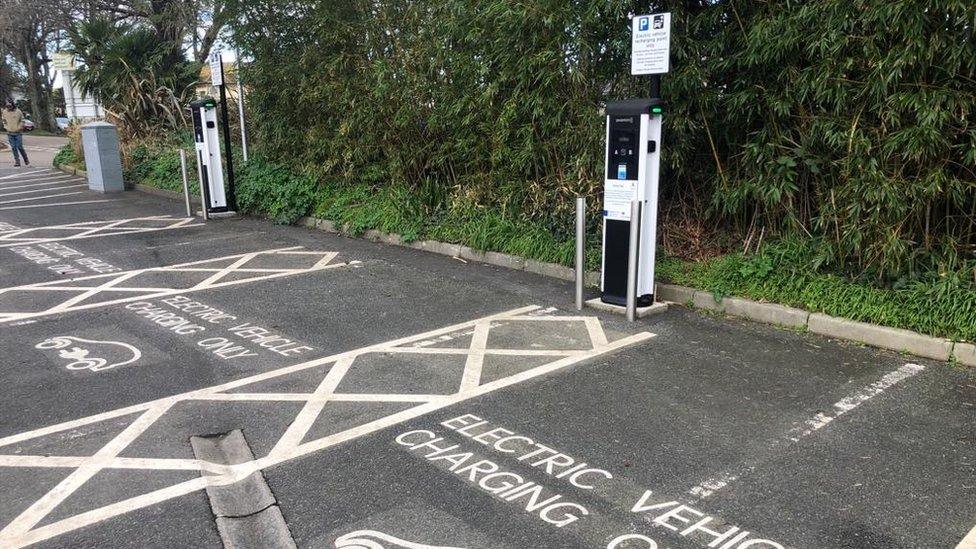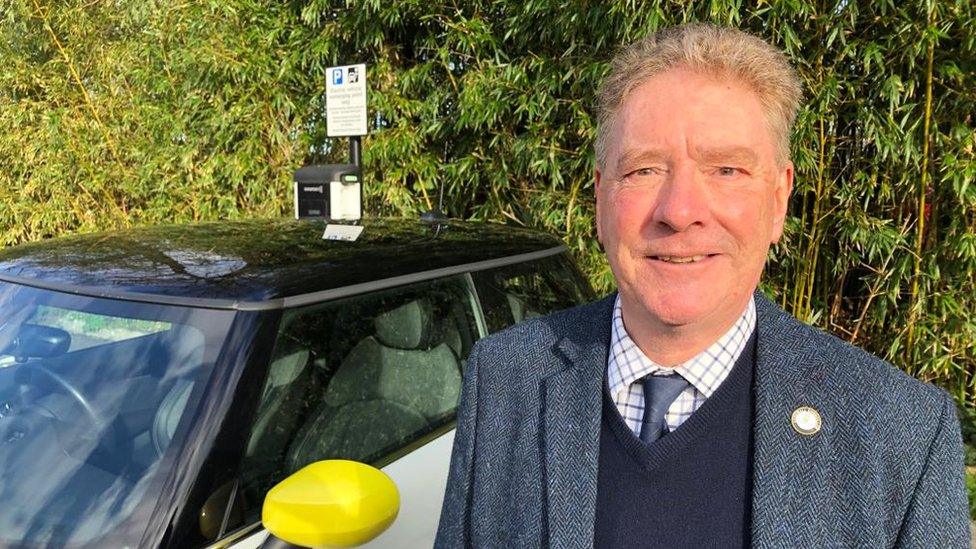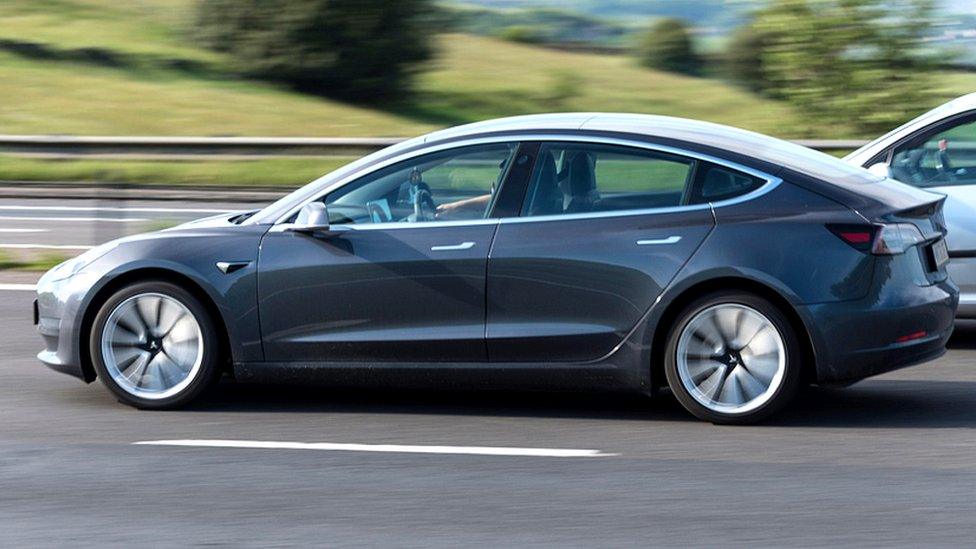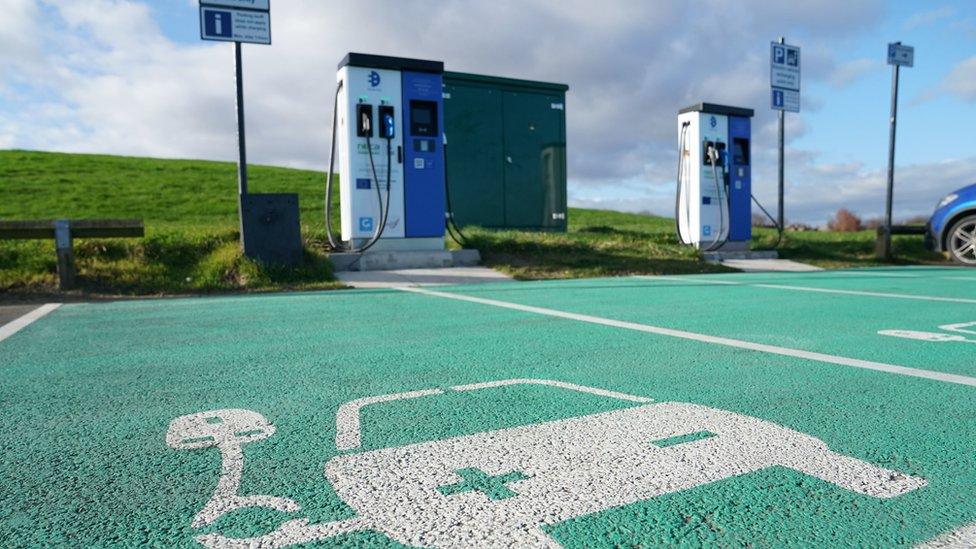Thousands more EV charging points needed in Cornwall, says report
- Published
- comments

People are being asked for their views on plans to expand Cornwall's EV charge point network
"Many more" public charging points for electric vehicles (EV) are needed in Cornwall, according to a council report.
The EV Infrastructure Strategy said there are currently 408 publicly available charge points in the county.
However, it estimates between 3,010 and 4,510 will be needed by the end of 2030.
The report also predicts 27% of people in the county could be driving an EV by 2030, compared to 2.4% in 2023.
Martyn Alvey, Cornwall Council cabinet member for Environment and Climate Change, said: "More and more people are going to be driving electric cars.
"We need to make sure they've got somewhere to charge them.
"Some of us have the luxury of being able to charge at home but others do not.
"We know they will need be able to charge at public charging points or on-street and we need to put those chargers in the right places for them".

Councillor Martyn Alvey says not everyone has the luxury of being able to charge a vehicle at home
People are being asked for their views on the draft document, external, which the council says will help "guide the expansion of the chargepoint network across Cornwall to 2030 and beyond".
The report prepared for the council said: "Whilst the UK currently has over 50,000 public charge points, these are unevenly distributed, and many more are needed, including in Cornwall."
Suitable locations will be considered once the strategy is agreed and adopted.
The private sector is expected to deliver a significant proportion of the charging points needed.
A similar consultation, external is being held in Plymouth.
The government's new zero emission vehicle ( ZEV ) mandate, external means 80% of new cars and 70% of new vans sold in Great Britain will have to be zero emission by 2030, increasing to 100% by 2035.
It follows the decision to delay the ban on new diesel and petrol cars from 2030 to 2035.

Follow BBC West on Facebook, external, Twitter, external and Instagram, external. Send your story ideas to: bristol@bbc.co.uk , external
Related topics
- Published25 July 2023

- Published19 September 2023
